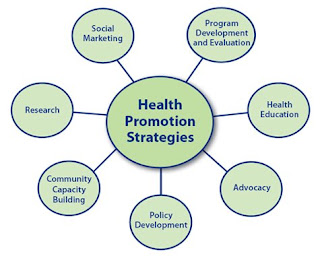Why Toothpaste is Not Meant to Be Swallowed
 One of the very first things about toothpaste that most of us come to learn is that it is not supposed to be swallowed. As youngsters brushing our own teeth for the very time, we will remember being very sternly warned against swallowing the toothpaste. At that age, that would have sounded rather counter-intuitive, because for one, most of us had toothpaste introduced to us as ‘medicine for the teeth.’ So if the toothpaste had medical value, why not swallow it; we would ask. It didn’t help matters either that most toothpaste brands tend to contain some amount of sugar, so they are somewhat sweet. And seeing that as youngsters, we would have been accustomed to being encouraged to swallow the various sweet things that came our way, leading many of us to wonder why toothpaste was the exception.
One of the very first things about toothpaste that most of us come to learn is that it is not supposed to be swallowed. As youngsters brushing our own teeth for the very time, we will remember being very sternly warned against swallowing the toothpaste. At that age, that would have sounded rather counter-intuitive, because for one, most of us had toothpaste introduced to us as ‘medicine for the teeth.’ So if the toothpaste had medical value, why not swallow it; we would ask. It didn’t help matters either that most toothpaste brands tend to contain some amount of sugar, so they are somewhat sweet. And seeing that as youngsters, we would have been accustomed to being encouraged to swallow the various sweet things that came our way, leading many of us to wonder why toothpaste was the exception.
So we grew knowing that toothpaste is not to be swallowed. And after some years, most of us just stopped asking questions, and came to conclusion that ‘that was just the way things are:’ toothpaste is not meant to be swallowed. But the critical thinker, which is what a majority of us consider ourselves to be, doesn’t just accept thing because they are said. The critical think wants to know the ‘spirit’ or the ‘wisdom’ behind every rule. When the critical thinker is told that toothpaste is not meant to be swallowed, he wants to know what the reasoning behind this instruction is. It is that, then, which we now proceed to explore.
As it turns out, the main reason why toothpaste is not meant to be swallowed is because it can be toxic. Put another way, the reason as to why toothpaste is not supposed to be swallowed is because some specific, well known ingredients in it can be toxic. This contrasts the explanations that most of us have devised for ourselves, to rationalize the instruction that toothpaste is not meant to be swallowed. In most of those other explanations, we tend to imagine that the reason toothpaste is not to be swallowed is because swallowing it (after tooth brushing) would amount to swallowing ‘dirt’ – the dirt in this case being the food particulates and bacteria that are washed away during the tooth cleaning process. The problem with this way of thinking is that it tends to make the potential consequences for swallowing toothpaste look less grave than they actually are. If all you will be doing, by swallowing toothpaste is ingesting a little bit of dirt, you won’t see that as a particularly huge deterrent against your doing so. But when you are told that what you will be doing, when swallowing toothpaste, is poisoning yourself, it suddenly becomes clear that it is something you should make an effort to avoid (by concentrated, and carefully supervising children’s teeth-brushing sessions).
Notice that even some of the most seemingly benign ingredients in toothpaste can bring about some horrific effects when ingested. Taking the example of fluoride, which almost every toothpaste tube contains in substantial amounts, we would know that swallowing it would cause a condition called fluorosis. Such fluorosis can in turn greatly compromise the quality of life for the person who happens to suffer from it.


